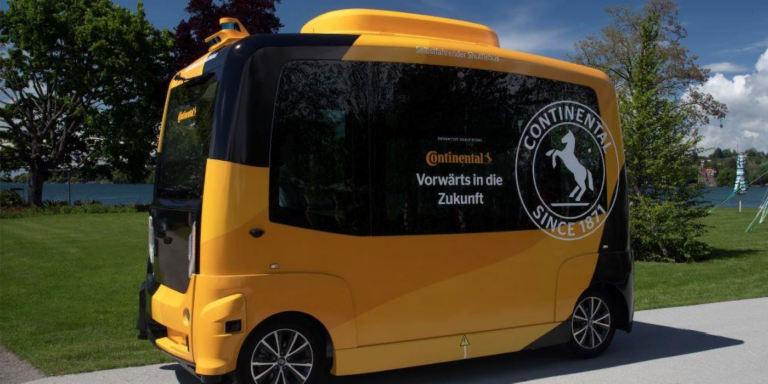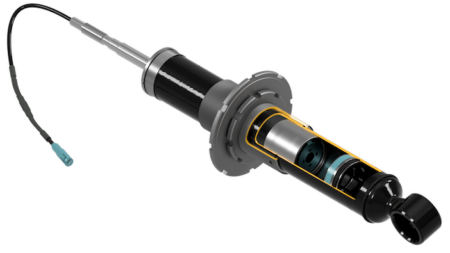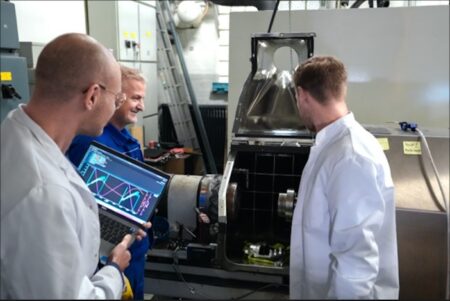Continental has conducted a Mobility Study to investigate what people on three continents think about driver assistance systems and automated driving technologies. The social research institute, Infas, surveyed representative samples of around 1,000 people in each of five countries – Germany, France, the USA, China and Japan – who gave insights into their mobility habits. The 5,000 respondents indicated that, while more and more drivers see benefits to autonomous driving, there is still skepticism, particularly in Europe and the USA.
Continental says that driver-assistance systems and automated driving are gaining acceptance worldwide. In China and Japan in particular, openness to the benefits of automated driving is already high, while people in Germany, France and the USA continue to have a ‘wait and see’ attitude. Overall, the company found that the technological possibilities in terms of automated driving are far more advanced than the current willingness of drivers to use them.
The situation is different, however, for driver assistance systems – here the study found a consistently high degree of openness in all five countries, especially when it comes to safety-related functions.
“The high level of confidence in driver-assistance systems indicates that as these become more widespread, confidence in automated driving will grow automatically. Our experience has shown that acceptance increases as people get to know and understand the functions in question,” stated Frank Petznick, head of the ADAS (advanced driver assistance systems) business unit at Continental. “Extensive testing is therefore key. This should be carried out in real-life traffic conditions in order to understand how people interact with the systems. In turn, this will provide important findings that can be incorporated into the further development of the technology.”
Continental added that the survey shows that most drivers still prefer to sit at the wheel of their car. “Although new technologies are important to them, fully giving up control is still unimaginable for many people,” read a company statement.
In Germany, France and the USA in particular, the majority of respondents indicated that they would be reluctant to hand over control of the steering wheel to technology. More than half of those surveyed in each of the three countries believe that automated driving is useful, but also a little frightening. This view is particularly noticeable in the USA, where 75% of respondents said they are concerned about the issue – significantly more than in the other countries surveyed. At the same time, this figure has not changed since 2018.
The contrast compared to the Far East is striking. In China and Japan, the respondents had a much more positive view of the technology. 91% of respondents in China, and 82% in Japan consider automated driving to be a useful development. In addition, 79% (China) and 67% (Japan) expect the technology to become a permanent feature of everyday road traffic in the next five to ten years.
Continental also found a lot of agreement across the countries in terms of the current arguments against automated driving: in all countries, around 80% of respondents say that legislation has not yet created a relevant framework for technical development on the manufacturer side. They also argue that policymakers should establish central guiding principles for use in daily road traffic.

A warm reception for new comfort and safety functions
There is no lack of general openness to technology among the people in the five countries surveyed. In fact, the majority of those in Germany, France, the USA, China and Japan are already open to handing over subtasks such as parking completely to assistants or to being supported in traffic by technology, for example by a turn-assist system. People in China (91%) are particularly appreciative of right-turn assist systems that specifically protect cyclists and pedestrians from turning vehicles. However, there is also a great deal of interest in this development in the other four countries surveyed – more than 70% of all respondents would like to use a turn-assist system in road traffic. In Japan, the deciding factor is price.
In a comparison of the five countries surveyed, the idea of fully handing over parking to an autonomous assistant is found to be particularly appealing in China (more than 90%). Although between 62 and 64% of respondents would like to use this technology in Germany, France, the USA and Japan, their decision is dependent to a greater extent on the price of the driver-assistance system. In China, price plays a role for only 5% of respondents, while in Japan the corresponding figure is 21%.
Paving the way for automated driving
The results have encouraged Continental in its R&D efforts and investments research in the area of assisted and automated driving. Between 2018 and 2020, Continental received orders amounting to more than €9 billion. The company has also set up Autonomous Mobility, an independent business unit dedicated to the future topic of automated and autonomous driving from 2022.
The unit’s work on components and systems for driverless taxis brings strong public exposure, with the vehicles being tested in public spaces as part of municipal collaborations, such as at the Bavarian garden show this spring, a field trial this summer in Tokyo, and a planned demonstration of the Continental Urban Mobility Experience (CUbE) test platform this autumn in advance of the ITS World Congress in Hamburg.
“It is precisely such approaches that make the possibilities of automated driving more tangible for people and further build confidence in the technology,” stated Frank Petznick.





